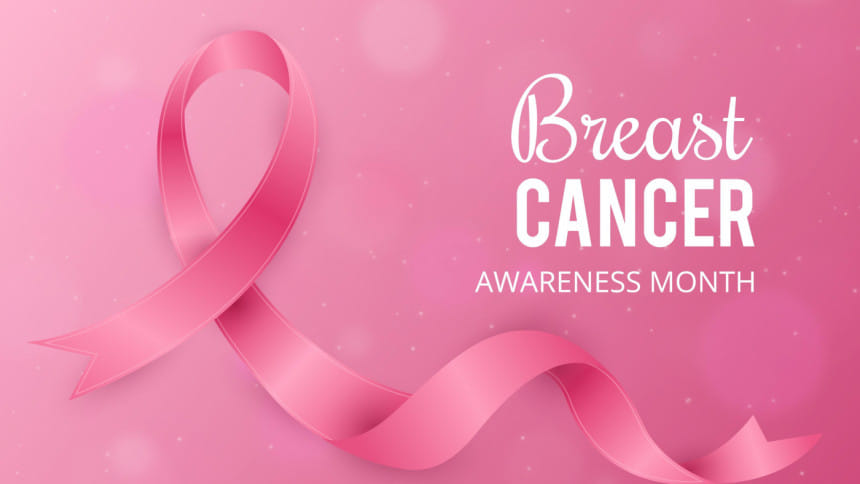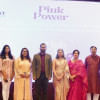The breast cancer fight needs affordable and accessible care

Breast cancer is known to be one of the most common health-related complications among women. The frequency and significance of this disease at the moment is even increasing. As the world observes Breast Cancer Awareness Month in October, it is natural to review the state of breast cancer care. According to the World Health Organization (WHO), in 2022, there were over 2.3 million women were diagnosed with breast cancer in a year which makes this type of cancer the most common type among women across the globe. Unfortunately, that year saw the death of over 670,000 women from this disease, calling for the need to change the strategies for prevention, treatment, and the outlook towards breast cancer entirely.
In Bangladesh, the situation has become more alarming. In December 2020, there were over 13,000 breast cancer cases and it is set to become a major cause of mortality among women. The impact of the disease is felt by families, communities, and the country as a whole. Women, in many cases, are being diagnosed with more advanced forms of the disease, thereby lowering their rates of survival. This is largely due to a mix of social taboos, unavailability of medical facilities and poor public education drives in rural and urban regions. That women often show reluctance to seek treatment for their female health-related issues, creates another problem in conservative cultures and the approaches to healthcare. To change these negative trends, it is necessary to tackle this stigma and increase healthcare service coverage.
Countries like the US and the UK have comprehensive screening programmes alongside reputable radiology departments which allow for early detection of the disease and if necessary, provide treatment. Hence, over 90 percent of patients have five-year survival rates. However, this is not the case in developing countries such as Bangladesh, where women tend to get diagnosed at a later stage when options for treatment are few and patients have to navigate through a fragmented healthcare system. To improve breast cancer treatment and care, coordinating healthcare initiatives in Bangladesh is required along with reforms to the health sector that guarantee access to basic healthcare for all women.
This problem can be approached effectively by creating awareness and educating the masses about the problem. Early detection of breast cancer is crucial, and if achieved, it can significantly lower the mortality rates from breast cancer, which is considered curable if detected early. Women should be motivated to carry out routine breast self-examinations. Awareness should be raised about the need to seek screening even in the absence of clinical symptoms. Moreover, mobile units that can conduct such screening in remote regions can be instrumental in providing these services to women who would otherwise not have them. Besides, urban-centred mobile services can be very effective and lifesaving for many women.
The worldwide creativity and efforts regarding breast cancer should bring forth new avenues of implementing treatment techniques that are cost-effective and practical. Although progress in treatment and medications have been encouraging for women in affluent nations, these remain inaccessible for the majority women in low-income countries. In such cases, united attempts towards making effective health strategies available regardless of financial limitations, should be the central focus of all governments and organisations contributing to global health. However, as new technologies are invented by scholars, it is also important countries with fewer resources such as Bangladesh can access those. A well-developed care plan that consists of information dissemination, screening and treatment of breast cancer at an affordable price will help to reduce the fatality rate from breast cancer.
The month of October offers the opportunity to commemorate the fight against breast cancer. Giving women the power of knowledge and access to healthcare facilities would be the first step as many can be saved. Breast cancer deaths around the globe can be decreased significantly, and a better quality of life can be guaranteed to millions of women by ensuring better treatment options, greater awareness, and more international collaboration.
Maria Rahman is a graduate of electrical and electronics engineering from BRAC University.
Views expressed in this article are the author's own.
Follow The Daily Star Opinion on Facebook for the latest opinions, commentaries and analyses by experts and professionals. To contribute your article or letter to The Daily Star Opinion, see our guidelines for submission.

 For all latest news, follow The Daily Star's Google News channel.
For all latest news, follow The Daily Star's Google News channel. 








Comments